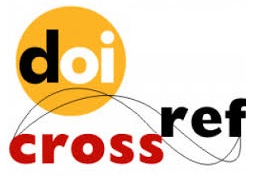Exploring Secondary School Teachers' Perspectives about Use of Social Media in Teaching-Learning
DOI:
https://doi.org/10.58932/MULI0011Keywords:
Social Media, Phenomenological Study, Secondary SchoolAbstract
Social media integration in educational settings has attracted a lot of attention in recent years. The purpose of the study was to ascertain how secondary school teachers felt about the usage of social media in teaching-learning process. The study employed phenomenological design. It was conducted on 30 teachers of public sector secondary schools of district Lahore. Data was collected by using self-developed semi-structured interview protocol. Thematic analysis was used to analyse the qualitative data. The study concludes that social media platforms, such as WhatsApp and YouTube, support instructional practices. However, challenges such as lack of facilities, privacy concerns, and unequal access to resources hinder effective integration. The study underscores the need for technological infrastructure and clear usage guidelines to maximize the educational potential of social media.
References
Ahmed, R. (2016). Social media integration in secondary education in Pakistan. Journal of Education and Educational Development, 3(1), 74-99. https://doi.org/10.22555/joeed.v3i1.712
Andleeb, N., Rafique, S., & Quratulain. (2023). Use of social media tools by undergraduates: Students and teachers’ perspectives. Journal of Social Sciences Review, 3(1), 758-767. https://doi.org/10.54183/jssr.v3i1.218
Ansari, J. A. N., & Khan, N. A. (2020). Exploring the role of social media in collaborative learning the new domain of learning. Smart Learning Environments, 7(9). https://link.springer.com/article/10.1186/s40561-020-00118-7
Awoke, Y. A., & Zikargae, M. H. (2023). Exploring the opportunities and challenges of social media use in teaching and learning processes at public universities in Ethiopia. Cogent Education, 10(2). 1-20. https://doi.org/10.1080/2331186X.2023.2277558
Basil, C. E., Juliet, O., Azubuike, R., Catherine, U., Florence, O., & Chidimma, J. (2020). Influence of social media on students’ academic achievement. International Journal of Evaluation and Research in Education (IJERE), 9(4), 1000-1009. https://doi.org/10.11591/ijere.v9i4.20638
Chugh, R., & Ruhi, U. (2018). Social media in higher education: A literature review of Facebook. Education and Information Technologies, 23(2), 605–616. https://link.springer.com/article/10.1007/s10639-017-9621-2
Gul, R., Tahir, T., & Ishfaq, U. (2023). Perspectives of the teachers on challenges and possibilities to online system of education amid COVID-19 outbreak in Balochistan, Pakistan. SAGE Open, 13(1), 21582440231155063. https://doi.org/10.1177/21582440231155063
Hussain, I., Cakir, O., & Candeger, U. (2018). Social media as a learning technology for university students. International Journal of Instruction, 11(2), 281-296. https://files.eric.ed.gov/fulltext/EJ1174928.pdf
Jankauskaite, D. (2015). Social media as a tool for improving teaching and learning experience. Signum Temporis, 7(1), 54-59. https://doi.org/10.1515/sigtem-2016-0008
Karim, K., Jaffar, K., & Azeem, S. (2022). Impact of social media on adolescents learning in district Quetta. Pakistan. Journal of Educational Research and Evaluation (PJER), 5(2). https://pjer.org/index.php/pjer/article/view/517/181
Kirschner, P. A., & Karpinski, A. C. (2010). Facebook and academic performance. Computers in Human Behavior, 26(6), 1237-1245. https://doi.org/10.1016/j.chb.2010.03.024
Kumar, V., & Nanda, P. (2022). Social media as a learning tool: A perspective on formal and informal learning. International Journal of Educational Reform, 33(3), 157–182. https://doi.org/10.1177/10567879221094303
Qureshi, M. A., Khaskheli, A., Qureshi, J. A., Raza, S. A., & Yousufi, S. Q. (2021). Factors affecting students’ learning performance through collaborative learning and engagement. Interactive Learning Environments, 31(4), 2371-2391. https://doi.org/10.1080/10494820.2021.1884886.








